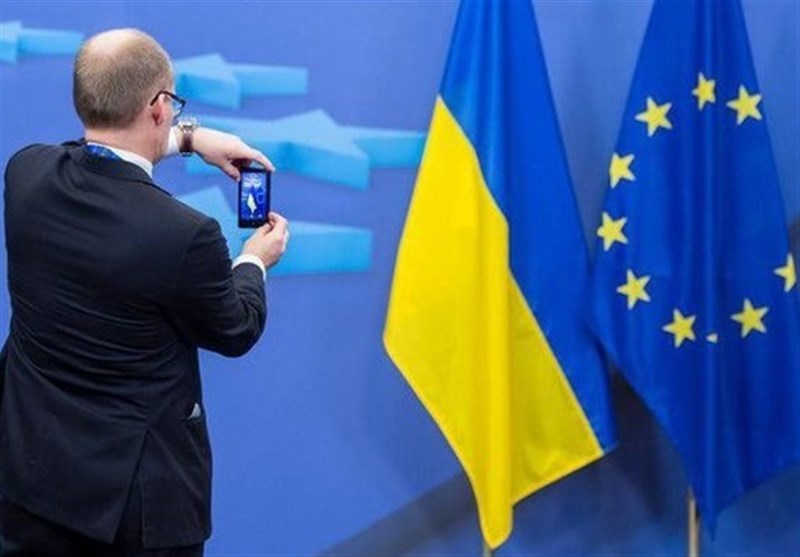Morteza Makki in an interview with the site of Strategic Council for Foreign Relations continued:” the ratification could be considered in line with the round of measures that have been taken by the European governments so far to support the Ukrainian government and to further constraint Russia”.
Having referred to the ratification of European Parliament to be considered mostly a political measure, he added:” the EU member states have set a number of political, economic and legal criteria to accede new members, and every applicant and candid country for the EU membership should meet the required conditions raised by the EU to join it”.
Makki explained that prior to the ratification, Ukraine and the EU had signed Deep and Comprehensive Cooperation Agreement at different levels, particularly after the Crimean Peninsula annexation to Russia. According to the expert, the agreements were covering so many areas that some observers believed Ukraine was considered to be among premium partners of the EU. Moreover, within the past seven years, trade volume between Ukraine and the EU has increased four times, the same amount has decreased in Ukraine and Russia trade volume.
Having stated that after annexation of Crimean Peninsula, Ukraine stepped towards integration with the EU and this is the case happened while it had not met the required conditions to join the EU, expert of European affairs emphasized:” the EU has taken unprecedented measures against Moscow and in support of Ukraine within the last week that means after the Russian invasion of Ukraine. The measures can further expedite the procedure of acceding the EU membership”.
He continued:” this is the case because the Brussels decisions to deal with Ukrainian crisis are political ones based on opposing any change in the geopolitics of the region”.
The expert continued to say that one of the most important conditions set by the EU for applicants to become members is to sort out all of their territorial and borders disputes with their neighbors and added:” the only country that managed to ignore this very EU condition and was acceded to the Union was Cyprus. In fact, the crisis of dividing Cyprus island has continued to remain unsettled for the past nearly fifty years. On Cyprus case, the EU in opposition to the Turkish policies acceded the country to the Union. As an applicant country for the EU membership and in order to avoid any turbulence for its membership at the Union, Turkey did not resist the Cyprus accession to the EU”.
Makki believes that Ukraine issue is more serious and its critical consequences are more extensive for the EU. Brussels has reached a solidarity to confront with Russia, the solidarity which is unprecedented.
He added:” therefore, it doesn’t seem unlikely that all of the EU members aiming at extending their support to Ukraine, will agree the country’s membership in the Union and seize the whole potentials of the Union to confront Russia”.
On the measures already taken by Russia to prevent the accession of Ukraine to the EU, the expert of European affairs explained:” in fact, with annexation of Crimea to its territory and in the light of supporting the independence of East Ukraine separatists in two regions of Donetsk and Luhansk, Russia was hopeful that with territorial and border disputes on the table, the issue of Ukraine membership to the EU will be postponed until the territorial disputes will be sorted out”.
He underscored:” but the ratification of the European Parliament is in such a way that challenges all calculations of Russian invasion of Ukraine. It means there was not only any difference of opinion on how to support Ukraine among the EU members, on the contrary, the European governments reached an unprecedented solidarity to confront Moscow”.
Having stated that Ukraine membership in the EU has to follow a certain path that should be observed, Makki continued:” but the ratification of the EP is the most unprecedented decision taken by the Union to accede a new member. That’s why it is not inconceivable that Ukraine will take a path different from that of other candidates to join the EU”.
The expert responded the question whether there would be any change in equations of the Russian clash versus Ukraine if it joins the EU or not? and explained:” Unlike NATO, the EU is not an organization that unites its members when there is a security crisis for them. The EU is an economic and political union. Therefore, Moscow’s sensitivity is mostly focused on Ukraine membership in NATO as a collective security treaty which practically connects NATO borders to Russia and is considered as a danger to security policies of Russia and the sphere of the country’s influence”.
He stressed that the process of Ukraine integration with the EU is indeed, aimed at exiting the country from the sphere of Russia’s influence. According to Makki, one of the Russian leverages on Ukraine was the country’s economic dependence on Russia. However, in view of the fact that Russian gas pipelines pass through Ukraine, it depended on Ukraine too. Although, following a number of crises, the mutual dependence was challenged during the past three decades and ultimately led to 2014 Crimea annexation and Russian military attack of Ukraine on February 24, 2022.
The expert of European affairs also commented on the probable perspective of the military clash and crisis:” in view of what happened within more than a week ago, Ukraine will not take a reverse course and Russia has probably been entrapped in Ukraine which will be accompanied by extensive economic, political and security consequences for the country”.










0 Comments